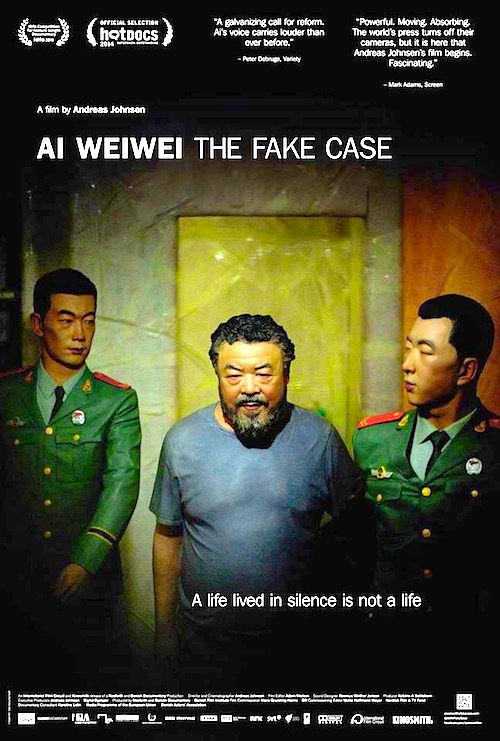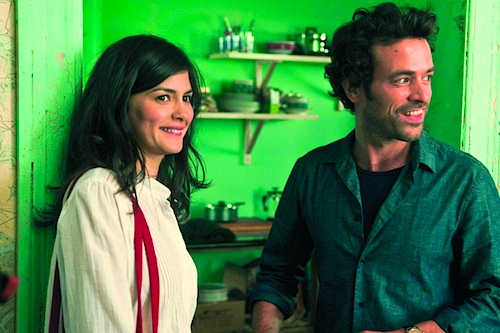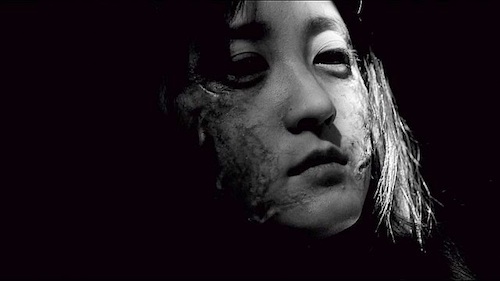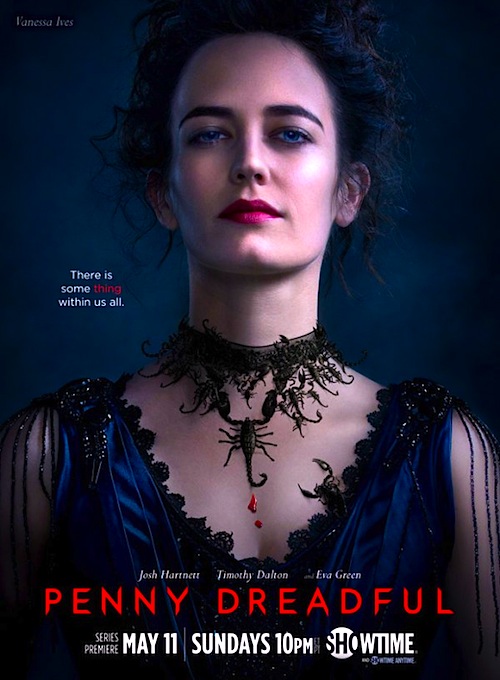By Joe Bendel. It is the product of eighty-one days of solitary confinement and rough interrogation. Recreating scenes from his ordeal, S.A.C.R.E.D. is already recognized as one of Ai Weiwei’s masterworks, as well as a devastating critique of the Communist Party’s police state tactics. At least the government did its best to prevent any distractions from delaying its completion—by confiscating his passport and placing him under house arrest. The artist’s difficult year spent as a prisoner in his own home-studio (known as 258 FAKE) is documented in Andreas Johnsen’s Ai Weiwei: The Fake Case, which opens this Friday in New York at the IFC Center.
Ai Weiwei is one of the most important artists in the world today, as his famous sunflower seed installation at the Tate Modern and the current retrospective at the Brooklyn Museum well attest. However, Teacher Ai claims he never initially set out to be a political artist, but was forced down that path by the government’s reaction to his work and activism. Those who have seen Alison Klayman’s Ai Weiwei: Never Sorry or Teacher Ai’s own films, particularly Disturbing the Peace and So Sorry, know the artist as a compulsively outspoken, larger than life figure. It is rather shocking to see the nearly (but not completely) broken Ai Weiwei who emerges from almost three months of illegal detention early in Fake.
 As a condition of his so-called parole, Ai Weiwei is forbidden to speak with the media, particularly international reporters. He duly complies, at least for a while. Suffering from memory gaps and nightmares, Teacher Ai is literally a pale shadow of his former self. Yet, as his health returns that familiar spirit also perks up.
As a condition of his so-called parole, Ai Weiwei is forbidden to speak with the media, particularly international reporters. He duly complies, at least for a while. Suffering from memory gaps and nightmares, Teacher Ai is literally a pale shadow of his former self. Yet, as his health returns that familiar spirit also perks up.
Once again, the Communist government provides an inadvertent assist, by requiring Teacher Ai to post a considerable bond during his appeal. Much to the artist’s stunned amazement, there is a massive outpouring of support on his behalf, as 100 Yuan note paper airplanes start sailing over his wall, at no small risk to the donors. Their heartfelt messages move him deeply. Frankly, if viewers do not get a little choked up at this point, they perhaps missed their true callings as Communist torturers (as sleep deprivation is widely acknowledged as a form of torture, it is indeed fair to say Teacher Ai was tortured while in custody).
Essentially, Fake picks up where Klayman’s documentary left off, making them excellent companion films. Of course, it is hard to go wrong with any film that captures Ai Weiwei being himself. Although we might expect Teacher Ai to be far more guarded on camera following his incarceration, the opposite appears to be true. Not only do we hear him talking candidly about the lasting effects of his imprisonment, we also witness (quite touching) scenes of him interacting with his young son, Ai Lao.
Arguably, we see more of Ai the private citizen than Ai Weiwei the public figure. Of course, that rather makes sense, considering he could not leave his home without government permission during this time. Nevertheless, the injustice of his persecution is clearly and thoroughly established. Largely observational in his approach, Johnsen’s trust in his subject’s cinematic presence and compelling work (be it artistic, political, or both) pays off handsomely. A source of inspiration and outrage, Ai Weiwei: The Fake Case is highly recommended for all viewers who value free expression when it opens this Friday (5/16) at the IFC Center.
LFM GRADE: A
Posted on May 15th, 2014 at 1:18pm.




